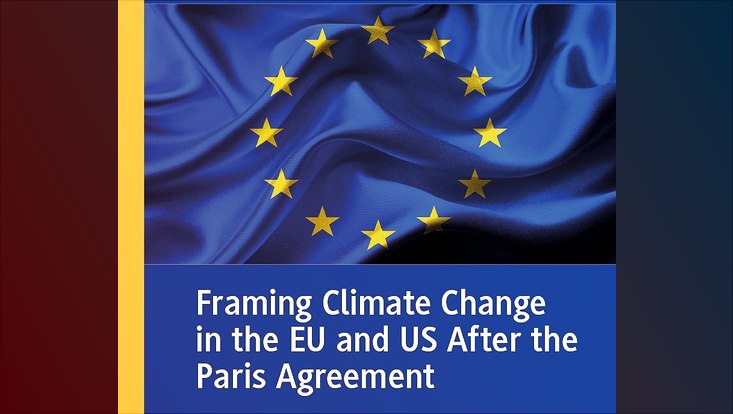Society Research
Frank Wendler publishes book with Palgrave MacmillanOut now! Framing Climate Change in the EU and US after the Paris Agreement
4 August 2022, by CSS

Photo: Springer
CSS member PD Dr. Frank Wendler has just published a new book in Palgrave’s acclaimed European Union Studies series, based on his DFG-funded research project "How Ideas Frame the Politics of Climate Change".
The book presents the first comprehensive comparison between the evolution of policy-making on climate change in the EU and US since the Paris agreement, leading up to current controversy on paths towards carbon neutrality by mid-century. The striking contrast between the two entities creates the foudation for the book’s main puzzle: How does the framing of climate change in political discourse vary between both systems, and how does its contestation contribute to the explanation of their divergent policy-making responses?
Addressing this question, the book presents a conceptual framework of frames applied by political agents to address climate change, and argues that their structure, linkages and contestation are key to understanding the respective political space of controversy on climate action. The empirical part reconstructs the evolution of policy discourse by executive and legislative institutions in the EU and US, and proceeds to a comparative analysis of debates on the global climate policy regime and key programmatic proposals for domestic policies aiming at decarbonization. Highlighting the relevance of different issue categories and their contestation through competing climate frames for understanding the political space of climate controversy, the book paves the way for further research on the politics of climate change, relevant dimensions of its contestation and the role of discourse for policy change.
Sebastian Oberthür (Vrije Universiteit Brussel, Belgium and University of Eastern Finland, Finland) comments: "This comparative analysis of contemporary climate change discourse in the EU and the US impresses through its sound theoretical grounding and systematic empirical investigation. It makes an outstanding contribution to understanding the critical role of ideas and their framing in climate politics. It also provides new insights into the deep-rooted transatlantic differences in this policy field. Recommended reading!"
More information on the book, including chapter abstracts and more commentary from the academic community can be found on the website of the publisher here.


